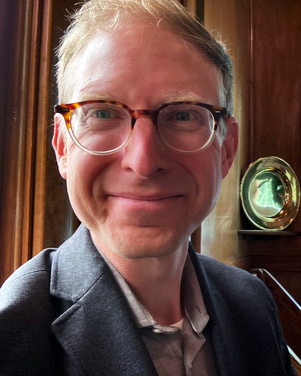In early February, over ninety Anglicans joined together online for the first “Missional Imagination conference.” Of those who participated, one third were from the Diocese of Kootenay.
The conference was directed towards resourcing people who are sensing God’s invitation to explore creative approaches to mission, and who feel uncertain about the next steps to take. Over the course of a Thursday evening and an all-day Saturday session, a variety of practitioners – lay people and clergy alike – shared stories of what God has been calling them into, in their contexts.
The imagination that was demonstrated was about more than updating liturgy or changing service music. In fact, neither of those were mentioned at any time during the conference. Instead, the speakers bore witness to the ways in which God invited them (and is inviting us) out into the neighbourhoods where we live, where we work, where we neighbour, and where we worship.
In a presentation during Thursday’s opening session, the Rev. Michael Garner from St Albans Anglican Church in Ottawa, Ontario, spoke about the importance of “action listening.”
Michael began by relating how when his parish council meets, they spend the majority of time in prayer. Members of St Albans’ parish council are expected to engage in daily prayer focused on the life and ministry of the congregation. And so, when the council meets, they do so to pray, to share what they have been hearing in prayer, and in light of what they are hearing, to discern the congregation’s next faithful steps.
Action listening relies on this foundation of prayer, but is not afraid to act in response to the needs that members of the congregation, and their leadership discover. Where as Anglicans, we can often listen, and listen, and listen, never ready to act, Rev. Garner shared the importance of bravely taking small steps with the information at hand to respond to the community around them. For St Albans, such Action Listening has led to the University inviting the congregation to provide monthly meals in one of the residences with the highest incidence of food insecurity.
A variety of other presenters spoke from their various vantage points. Musician and United Church music minister Drew Brown spoke to the importance of Creativity, Listening, and the Prophetic Imagination. He shared stories of gathering with his neighbours in the park to envision a neighbourhood that embodies their deepest values.
At Hallowe’en, neighbours gather on his porch and dare to imagine ways of enacting those things in the year ahead: block parties, neighbourhood gatherings, opportunities to break down the loneliness of modern life. One afternoon he tapped other fathers on the shoulder, asking if they wanted to gather at the local pub for wings after they had put their kids to bed. By the time 8.00 pm rolled around, there were over twenty gathered. As Drew tells the story, there was laughter and there were tears. Relationships deepened and continue to grow. With each step, each interaction, an opportunity and invitation to contribute to the building of God’s beloved community.
Beth Carlson-Malena, shared her experiences planting the “Open Way Community” in Vancouver, a community that developed and grew out of and for people – specifically queer folks – who we regularly marginalize in the church. Beth’s story was a vital reminder to me that there is still a long way to go towards the full embrace of all God’s children in our communities. But what’s more, she spoke about the power of partnership and celebration, collaborating with unlikely suspects, across denominational lines, and finding life and abundance in these mutually transformative relationships.
There were so many more presentations, all of them a gift. And yet at the heart of each of them, the reminder to listen deeply to God and to our neighbours, committed to taking small responsive steps in faith, hope, and love–fidelity, imagination, and bravery. Whether we’re seeking to start something new, or to reimagine how we might embody and proclaim Good News amongst our neighbours, we have opportunities to do so.
At the end of the conference, one question loomed large for me: do we believe that this news is good enough to share? If it’s not, why do we stick around? If we do, what are we willing to do about it?


